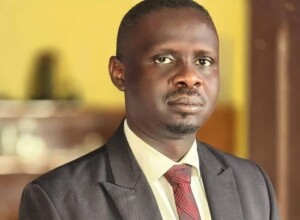Op-ed: A historic milestone – the Ali Kushayb trial at the ICC shows progress in fight against impunity
15 years after the International Criminal Court (ICC) issued an arrest warrant against Ali Muhammed Abdelrahman (better known as “Ali Kushayb”), he now prepares to stand trial in The Hague on 5 April 2022. The trial will be the first case the ICC’s judges have handled on atrocities committed in Darfur in the early 2000s, and the first to come out of a UN Security Council referral. Known to many in Sudan, Kushayb is a former commander of the Janjaweed, the government-sponsored militias which carried out brutal attacks on civilians. He is charged with 31 counts of war crimes and crimes against humanity.
 Ali Muhammed Abdelrahman (better known as 'Ali Kushayb') appears at the ICC in The Hague in May last year (Photo: ICC-CPI)
Ali Muhammed Abdelrahman (better known as 'Ali Kushayb') appears at the ICC in The Hague in May last year (Photo: ICC-CPI)
By Emma DiNapoli, Legal Officer at REDRESS*
15 years after the International Criminal Court (ICC) issued an arrest warrant against Ali Muhammed Ali Abdelrahman (better known as “Ali Kushayb”), he now prepares to stand trial in The Hague on 5 April 2022. The trial will be the first case the ICC’s judges have handled on atrocities committed in Darfur in the early 2000s, and the first to come out of a UN Security Council referral. Known to many in Sudan, Kushayb is a former commander of the Janjaweed, the government-sponsored militias which carried out brutal attacks on civilians. He is charged with 31 counts of war crimes and crimes against humanity.
Kushayb’s trial is a major milestone: no other high-level perpetrator of crimes in Darfur has been prosecuted, whether in a Sudanese or international court. In fact, the only charges related to a large-scale attack on civilians in Darfur, which may have constituted crimes against humanity or a war crime, led only to convictions for theft at the Special Criminal Court on the Events in Darfur. In light of the prevailing impunity in Sudan, Kushayb’s trial at the ICC is an important step forward in efforts to provide acknowledgment and some form of justice for victims of serious international crimes in Darfur, including widespread sexual and gender-based violence, torture and enforced disappearance, and mass displacement.
Uniquely, victims of crimes allegedly committed by Ali Kushayb have the opportunity to participate in the trial, through legal representatives who are authorised to share the views, concerns, and experiences of victims to the judges. For those who have suffered harm from one of the crimes charged against Ali Kushayb, there is still time to apply to participate in the trial.
At the end of the trial, if Kushayb is convicted of any of the charged crimes, victims can apply to the court for reparations. Reparations can take many different forms, including individual or collective monetary awards, collective reparations for whole communities (such as housing or education assistance, or income-generating activities such as vocational training), or other symbolic separations. The ICC judges will decide which reparations are appropriate based on the facts of the case.
The stakes are high for victims, many of whom remain displaced from their homes in IDP camps in Sudan or across Sudan’s borders in neighbouring countries. Others in Darfur face the threat of ongoing violence, which has spiralled across Darfur since the 25 October 2021 military coup. Episodic clashes between armed militiamen and farmers have escalated, displacing thousands of people and resulting in the death of at least several dozen people. As many have noted previously, there is a direct link between the violations in Darfur, Khartoum, and elsewhere and those committed in the past by Janjaweed forces under the direction of Ali Kushayb, former president Omar al-Bashir, and his colleagues also wanted by the ICC.

For these reasons, Kushayb’s trial will be a good start towards delivering meaningful justice for the individual victims of the specific crimes for which he is accused, and for illustrating to Sudan’s military leaders that accountability will come, even if slowly. But justice in Sudan will remain incomplete until all perpetrators of crimes committed in Darfur—and elsewhere—are brought before a court, even those in power today. Some perpetrators, like al-Bashir, Ahmed Haroun, and Abdulraheem Mohamed Hussein, are in Sudanese custody and should immediately be transferred to The Hague to stand trial at the ICC, like Kushayb.
Others will need to be tried in a Sudanese court. It is important to remember that the ICC is not capable of—or designed to—address the whole range of crimes committed in Sudan, both under al-Bashir and presently. Since the coup, the military and security services have committed serious human rights violations, including mass arrests, arbitrary detentions and enforced disappearances, torture, and the use of excessive and lethal force against unarmed protestors—all tactics favoured by the al-Bashir regime to suppress dissent. It is not likely that the perpetrators of these crimes will be brought before ICC judges.
This is because the ICC is known as a “court of last resort,” meaning that it will only intervene when states are either unwilling or unable to try alleged crimes themselves. Sudan has the primary responsibility for investigating and prosecuting international crimes and human rights violations. The ICC can also only open an investigation into serious international crimes in certain situations: where crimes were committed on the territory of (or by nationals of) States that have ratified the Rome Statute (the treaty creating the ICC), where the UN Security Council refers a situation to the ICC, or when a State agrees to the ICC’s jurisdiction in a certain situation. Sudan is not a party to the ICC, but the UN Security Council referred the situation to the ICC in 2005, leading to the Ali Kushayb trial and arrest warrants for al-Bashir and others. Unfortunately, the ICC does not have jurisdiction over a broader range of crimes, such as the 3 June 2019 massacre or ongoing violations in Khartoum.
Today, Sudan’s courts are not capable of managing complex, large-scale investigations, and the judiciary and Public Prosecution lack the requisite independence from those in power needed to prosecute international crimes. Legal and institutional reforms must be implemented to ensure Sudan’s judicial system is able to investigate and prosecute grave violations by State officials and others promptly and thoroughly. But accountability can take many forms, including prosecutions as well as memorialisation (to ensure the truth is known about crimes committed) and reparations. Sudanese civil society can play an important role in determining where domestic and international justice processes should direct their attention even now, particularly during this difficult moment in Sudan’s history. It is also important that the international community listens to the people of Sudan, who should set the policy and accountability agenda.
18 years after crimes began in Darfur, Ali Kushayb will stand trial at the ICC in a historic milestone. Sudan’s international partners must work with Sudanese civil society and victims, both in Darfur and throughout Sudan, on prioritising human rights and legal reforms to ensure that he is not the last to do so.
Disclaimer: The views and opinions expressed in this article are those of the contributing author or media and do not necessarily reflect the position of Radio Dabanga.
* The author, Emma DiNapoli, is Legal Officer at REDRESS, an NGO that operates from London and The Hague, which pursues legal claims on behalf of survivors of torture to obtain justice and reparation for the violation of their human rights. The NGO empowers survivors to access justice through human rights cases against governments, civil cases against individuals, and criminal cases where they advocate for law enforcement bodies to prosecute perpetrators under the principle of universal jurisdiction.











 and then
and then